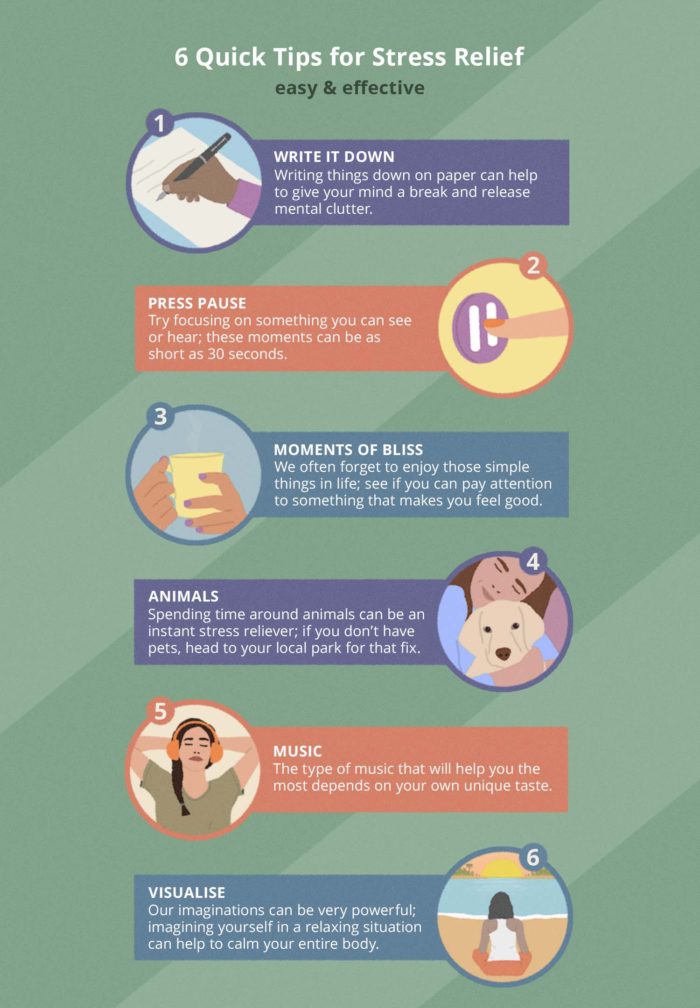The Best Stress Relief Activities: A Mind Ease Guide for Relieving Stress
Stress relief doesn’t necessarily mean getting rid of stress altogether, it means finding ways to reduce your stress levels or to better cope with stress when things start to get overwhelming. Introducing just one or two techniques into your routine can help make sure that the change is more lasting and sustainable.
Work to do, a house to keep clean, bills to pay, errands to run, people to catch up with… Let’s face it, life can be pretty stressful! We might feel like we need a spa day or a big sleep in, but who has time for that?
With the help of Mind Ease – Stress Relief App, you can learn about the most effective ways to manage stress in day-to-day life.
What is the meaning of Stress Relief?
Stress is a very common experience, particularly in this fast-paced society we live in. In fact, some degree of stress is often useful—without it, we probably wouldn’t care about much, our motivation would likely be low, and we may even struggle to get out of bed.
Stress presents itself differently for everyone. Too much stress can be detrimental to our mental health, physical health, and quality of life. High stress is related to depression, sleep difficulties, fatigue, headaches, chronic pain, digestive problems, cardiovascular illness, and a range of other health complaints.
Stress relief doesn’t necessarily mean getting rid of stress altogether, it means finding ways to reduce your stress levels or to better cope with stress when things start to get overwhelming. For instance, a stress relief activity might bring your levels of stress down from an 8/10 to a 4/10, or might make you more mentally prepared to handle life’s challenges.
The best Stress Relief exercises
There are a variety of things you can do in different situations to either help yourself relax, shift your mood, or lighten some mental load.
Relaxation exercises
Press Pause: Our minds are often cluttered with thoughts. This can make us feel mentally fatigued by the end of the day. It can be helpful to take brief moments throughout your day to purposely try and clear your mind. It might help to focus on something you can see or hear, rather than focusing on your inner thoughts. These moments can be as short as 30 seconds, and you can try this as often as you like. For instance, you could set a rule of doing this on the hour every hour.
Relieve Muscle Tension: When we’re stressed, we often hold tension in our muscles without even realizing. To help relieve this tension, start at your feet, and tense your muscles tightly for a few seconds and then release them. Notice the difference between the tense and relaxed feeling. Progressively move through each muscle group—legs, buttocks, stomach, back, arms, shoulders, neck, face—and enjoy the feeling of your muscles relaxing. Mind Ease has a guided muscle relaxation exercise to help you learn this technique.
Breathe: Feelings of stress and anxiety can cause our breathing rate to increase, which is one aspect of our bodies being in stress-mode. Research shows that we can change how we’re feeling by intentionally changing the rate of our breath. Take a few deep and slow breaths, making sure that the exhale is longer than the inhale. You can find an adjustable timed breathing guide on the home screen of the Mind Ease app.
You could count the seconds as you breathe to help find the right pace (e.g., four seconds in, two second pause, six seconds out).
Visualization: Our imaginations can be very powerful. Imagining yourself in a relaxing situation can sometimes help to calm your entire body. You could picture yourself laying on a beach, sitting by a stream, or whatever environment feels good to you. Try to imagine as much detail as you can, including the things you can see, hear, feel, and smell. Need help? Try the Calming Visualization exercise in the Mind Ease app.
Lighten the load
Conversation: Talking to trusted others about the things you are struggling with can be a helpful way to relieve some of the pressure. Have a chat with a friend, partner, or family member as regularly as possible. Social support and interaction are important for mental wellbeing. Even if you’re not talking about your stress, having pleasant conversations with loved ones about any topic can help to relieve anxiety.
Write It Down: Trying to hold everything in our mind increases that mental clutter we spoke about earlier. Writing things down on paper, like your worries, to-do lists, or anything else on your mind, can help to give your mind a break and organize things more clearly.
Exercises to shift your mood
Moments of Bliss: When we’re stressed, we often forget to enjoy the simple things in life. At least once a day, see if you can pay attention to something that makes you feel good. It could be something as simple as your morning coffee or a hot shower. Whatever it is, try to focus your mind on it and really enjoy the moment.
Music: Research shows that music can be a fast and effective way to relieve stress. The research also found that there is not necessarily one type of music that is best for everyone—the type of music that will help you the most depends on your own unique taste. Even heavy metal music can be helpful for people who are into that kind of thing!
Comedy: Laughter is often a great way to shift your mood. Like music, everyone’s tastes are different. Find something that truly makes you laugh, like a good TV show, podcast, YouTube channel, book, etc. Take time to enjoy some comedy throughout your week.
Gratitude: It’s easy to focus on all the stressful and negative things in life and not notice all the nice things that happen. Each day, try and reflect on something you were grateful for.
You could keep a gratitude journal, take daily photos of something you appreciate, or even arrange to share with a loved one something you’re each grateful for every day.
Animals: Spending time with animals can be an instant stress reliever. If you have your own pets, take the time to cuddle, play with them, or walk them as often as you can (they’ll appreciate it too!) If you don’t have pets, you could maybe visit a friend who has a pet, or head to your local dog park or cat cafe for that fix!
Stress Relief techniques you can easily apply to your daily life
One golden rule for improving your ability to cope with stress is to make stress-relieving techniques a part of your routine. It doesn’t have to be all of the techniques, but practicing any that you like on a regular basis, even in times when you don’t feel stressed, will make it easier and more natural to use the technique when you are stressed.
In addition to regularly applying any of the above techniques to your daily life, there are some other changes you can make to your daily routine to generally improve your coping skills and wellbeing.
These include having a regular sleep cycle and other sleep hygiene techniques, doing regular physical exercise, trying to keep a healthy diet, avoiding using alcohol or other substances to handle stress, and having a self-care routine.
Using a stress relief app like Mind Ease may also help you build a routine for practicing exercises regularly. One user of the app said:
The exercises are fantastic, and most of the time I can honestly see that I’m feeling better than I did prior to doing the exercise. It keeps me interested and coming back for more!

Chronic stress relief: As sustainable as possible is the motto
Changing routines and behavior can be hard. Putting pressure on yourself to do lots of healthy things all at once can sometimes lead to poor results. It’s ok to start small—introducing just one or two techniques into your routine can help make sure that the change is more lasting and sustainable.
We’ve covered a bunch of exercises here, some of them might sound more appealing to you than others, or you might not be sure of what would work best for you. Pick out whichever ones you’d like to try and see how you go! If you notice that you’re stressed a lot of the time, it can be a good idea to start trying some of these techniques soon to prevent emotional exhaustion and burnout.
Remember that we all feel stressed sometimes, so share this post on social media to help others out too—you never know who needs this right now!
Download the Mind Ease app now to try our stress relief activities.





